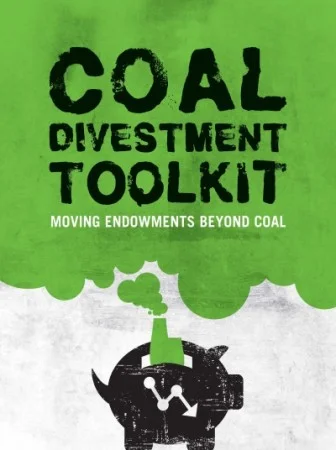While the coal industry used its recent setbacks as an opportunity to shuck off environmental responsibilities, 20 of 28 oil and gas companies engaged in hydraulic fracturing (“fracking”) actually improved their scores in an annual investor report card ranking the companies on how they report their policies to reduce risks from fracking operations. Even so, much work remains to be done, with seven out of 10 fracking companies still earning failing scores.
Read MoreOver the past year, a growing movement of investors representing more than $3.4tn in assets under management have divested some portion of their fossil fuel investments. But where to invest this capital? The Clean200 ranks the largest publicly listed companies by their total clean energy revenues, with a few added environmental, social, and governance screens to help ensure the companies are indeed building the infrastructure and services needed for what many have called the “Great Energy Transition” in a just and equitable way. Notably, this new report highlights the fact that clean energy investments greatly outperform stagnating fossil fuel stocks.
Read MoreEnergy markets are undergoing a fundamental transition as the world moves toward a low carbon, clean energy economy. What does this transition mean for the future of the oil industry, including majors like Chevron, ExxonMobil, Shell, Total, ConocoPhillips, and BP? Are there similarities between changing oil market fundamentals and those causing the recent collapse of the U.S. coal industry?
Read MoreDisclosing the Facts 2015 is the fourth in a series of investor reports intended to promote improved operating practices among oil and gas companies engaged in horizontal drilling and hydraulic fracturing. Hydraulic fracturing operations often use toxic chemicals and high volumes of water, release significant levels of greenhouse gases and other pollutants, and have the potential to adversely impact local communities when not properly managed. These issues translate into financial risks to companies and shareholders in the form of fines, regulations, or threats to companies’ social license to operate.
Read MoreThe U.S. branch of the Green City Bonds Coalition, a group of global organizations working to facilitate green bond expansion, has released The Green Muni Bonds Playbook. This fifteen page report provides guidance for cities and other public entities that issue municipal bonds to pay for infrastructure such as energy, water and transportation. It describes the state of the market, the benefits of issuing green bonds, how the market defines what is green and the steps cities need to take to access this growing market. It also includes case studies from a number of cities.
Read MoreDisclosing the Facts 2014: Transparency and Risk in Hydraulic Fracturing Operations, an update to our 2013 report analyzing whether companies report their practices and progress in reducing risks of their hydraulic fracturing operations, was released today by As You Sow, Boston Common Asset Management, Green Century Capital Management, and the Investor Environmental Health Network.
Read MoreGreen Bonds in Brief: Risk, Reward, and Opportunity, a new report from As You Sow and the Cornell Institute for Public Affairs, offers a look at how green bonds, an exciting financial instrument directing funds to environmental and climate projects, offer an opportunity for both investors and issuers to encourage sustainable growth.
Green bonds are on track to provide forty billion dollars in 2014 and one hundred billion dollars in 2015 to green projects such as energy efficiency, renewable power, and cleaner transit.
Read MoreCompanies across the board are failing to report reductions of their impacts on communities and the environment from hydraulic fracturing.
The oil & gas production industry is consistently failing to report measurable reductions of its impacts on communities and the environment from hydraulic fracturing operations, according to a scorecard report released by As You Sow, Boston Common Asset Management, Green Century Capital Management, and the Investor Environmental Health Network.
Read MoreAfter years in development, cleantech is now going mainstream. Cleantech infrastructure, technology and services are revolutionizing how we make, grow, transport and consume things. They’re helping the world meet energy demands. They’re creating livelihoods and prosperity in uncertain economies. Is there still time for investors to make good returns in cleantech? Yes. Here’s why.
Read MoreDivestment is the process of selling an asset for either financial or social goals.i Divestment is a powerful way to take a stand against companies involved in an activity that is morally reprehensible. This strategy has been used to send a strong message and to force change in corporate policies and governance. Through divestment campaigns, shareholders (the people and organizations that own corporate stock) take responsibility for the actions of the companies they own and demand change or sell their shares.
This report presents, in non-scientific language, the process of manufacturing PV panels, the risks involved, and how companies mitigate those risks. It focuses on practices and policies companies use to mitigate risks from hazardous compounds, reduce environmental impact, and responsibly manage their supply chains.
As You Sow’s Update to the White Paper provides a snapshot of the current trends underlying five financial risks for investments in coal: for mining companies, they are driving shifts in generator demand away from coal; for electric utilities, they are making “cheap coal” costly compared to other generating options or increased efficiency.
The White Paper demonstrates that these risks combine to make current and future investments in coal-dependent utilities and coal mining companies exceedingly precarious.













